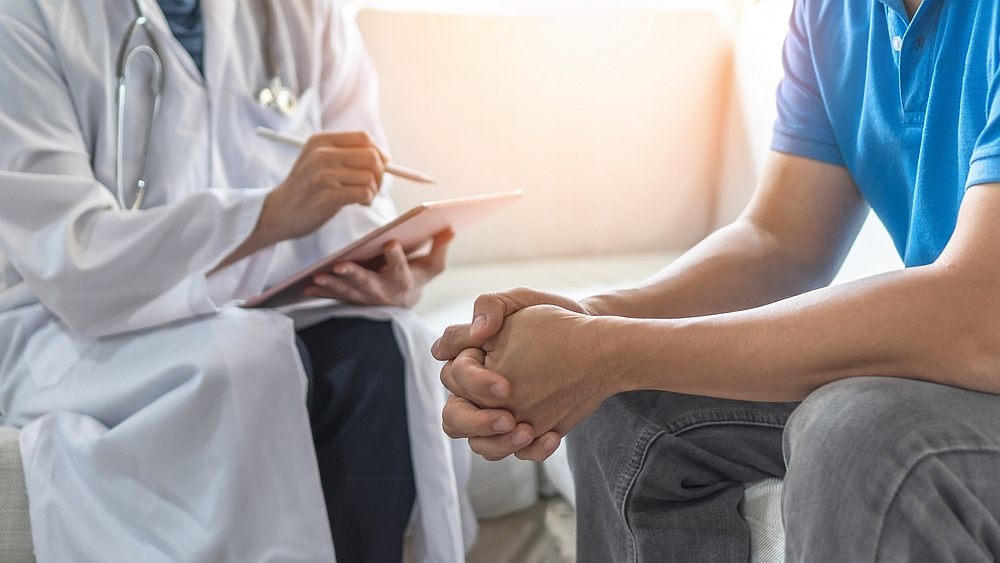KUALA LUMPUR, Sept 24 — Instead of asking ChatGPT or Google for help with anxiety or depression, you should seek professional help as quickly as possible, psychiatrist Dr Lee Chung Wah has advised.
It’s not about being ‘weak’, anyone can get depression or anxiety
Dr Lee, a senior lecturer in psychiatry at Taylor’s University, said some people may see depression as a sign of weakness.
But he noted that everyone experiences stress and “ups and downs” in life, and that it is “actually normal to be not OK” as everyone has their own breaking point.
“It’s OK to be not OK. But you need to know when to get treatment, and don’t be shy to get treatment.
“It’s always OK to get treatment. And getting treatment does not equal to lifelong medication. Not necessarily,” he told Malay Mail after his talk at the recent 2025 Noncommunicable Diseases Malaysia (NCDM) Conference.
He explained that common mental disorders — such as anxiety and depression — typically do not require lifelong medication, unlike severe mental disorders such as schizophrenia and bipolar disorder, which need long-term medication to address chemical imbalances.
There are also situations where patients may not need medicine and can instead talk to a psychologist to work through what they are experiencing, he said.
“It’s very OK to be worried; it’s OK to be sad. But you don’t have to be shy about it, you can talk about it. You can seek help.”
When should you seek help?
He said it is time to seek help when your symptoms are:
- Too intense (for example, anxiety so severe that you have a panic attack)
- Too frequent (for example, symptoms that recur every month)
- Too prolonged (for example, persistent anxiety that affects your ability to function for months)
Hiding yourself away will not help, and it is futile to hope the condition will “go away” if you simply avoid thinking about it, he warned.
Why you wouldn’t want to just wait without getting help
Dr Lee said many people try to “cure” themselves of depression and anxiety instead of seeking professional help.
“Everyone will try and play doctor. Everyone will go for ChatGPT, or you know, Google,” he said.
Some also convince themselves that their condition is not “serious” as long as they do not see a psychiatrist or take medicine.
“So that’s why a lot of them will really keep until ‘simpan sampai basi‘ (it goes stale). They really keep until the condition deteriorates, until it is so intense, until they cannot function anymore,” he said.
By the time they see a doctor, they may be close to being fired and may need a medical letter for extended leave from work.
While such patients can still be treated, Dr Lee said it is best not to wait until this stage, as recovery will then take longer before they can return to work.
Delaying professional help could also lead to social consequences such as losing jobs or friends, and leave physiological changes — such as poor focus, insomnia and loss of appetite — unaddressed.

Ask an actual doctor instead of trying to get answers from the Internet for depression or anxiety. — Chinnapong / Shutterstock pic via AFP
What to do if your friend needs help?
Have you noticed a friend forgetting things, unable to focus or concentrate, or struggling to work?
You can support them by encouraging them to seek help, Dr Lee said.
Ask if they have noticed changes in their own behaviour or if they realise they have not been feeling well, and gently suggest: “Have you ever thought about maybe seeking a doctor’s opinion, or help?”
Help break the taboo: With empathy and treating it as a normal topic
Dr Lee said the public still tends to treat mental disorders as a “hush-hush” topic that remains taboo, unless people start talking about it openly like other illnesses such as diabetes.
For example, if a friend says they have depression, you can ask if they are getting treatment.
“You have to be able to generalise and say that ‘this is a normal thing. You are not the only one having this problem’,” he said.
What do you mean by getting ‘help’? (Hint: You don’t have to go straight to a psychiatrist)
Start by visiting a family medicine doctor at a government clinic, or a general practitioner at a private clinic, Dr Lee said.
The doctor can diagnose your condition and refer you to a psychologist or psychiatrist if necessary.
Recovery may include changing environments or changing mindset
Dr Lee said depression and anxiety can be caused by various factors — biological, genetic, social and environmental.
If your stress is work-related, you should address it by changing jobs or by changing how you respond to or manage your boss’s demands, he said.
“So, psychologically, the way you think, the way you look at yourself, look at other people, and look at the world, also can make you more easily depressed, more easily anxious,” he said, noting that this can be shaped by a person’s personality, upbringing and life principles.
For example, when an employer raises their voice, one person may see this as a major threat and feel vulnerable, thinking they are “useless” or “the worst” employee, while others in the same room might simply shrug it off, he said.
In such situations, medication might first be needed to stabilise the condition, while a psychologist would also help change thought patterns to become “more positive”, he said.






